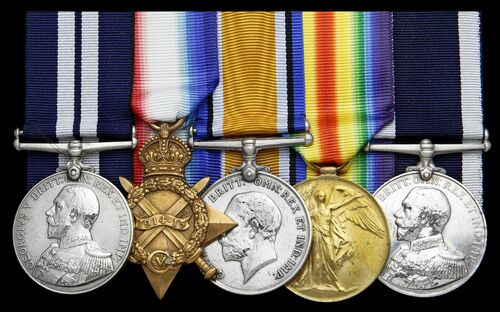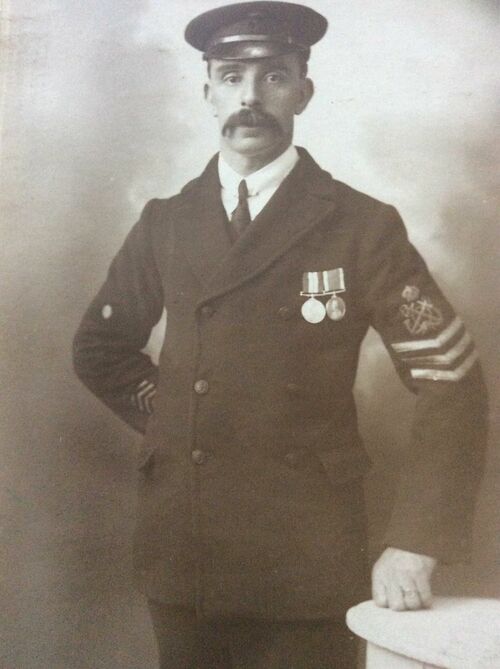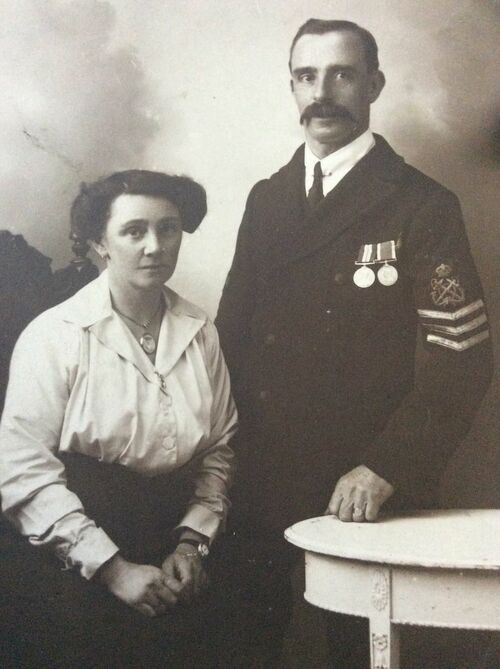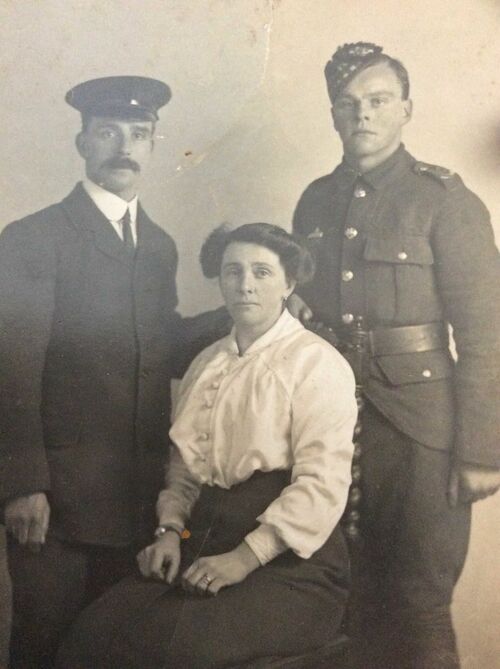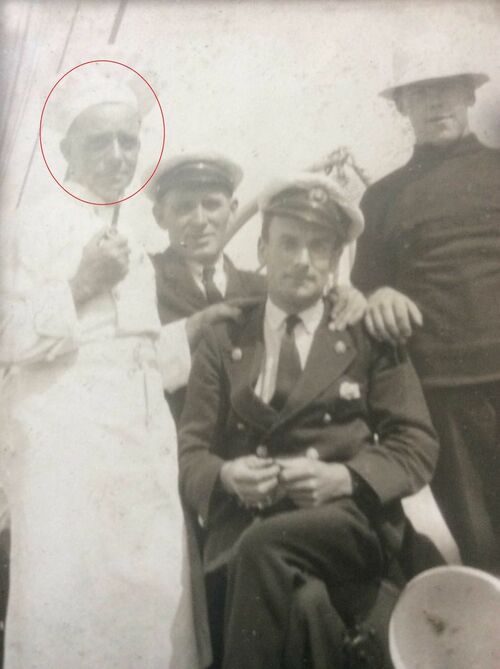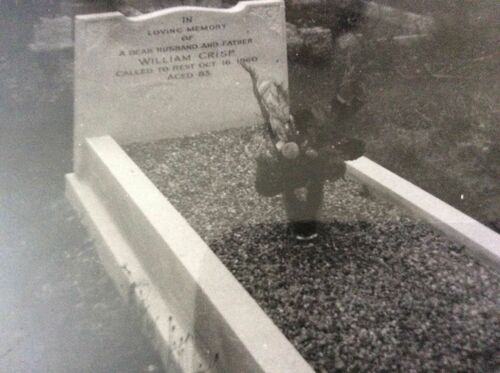Auction: 24001 - Orders, Decorations and Medals
Lot: 133
A good D.S.M. group of five awarded to Officer's Steward Class I W. Crisp, Royal Navy, who saw action at Heligoland Bight and Cuxhaven in 1914 with Hind and fought at Jutland with Marlborough
Distinguished Service Medal, G.V.R. (354236. W. Crisp, Off. Stw, 2Cl. H.M.S. Ulster 1917.); 1914-15 Star (354236, W. Crisp, O.S.2., R.N.); British War and Victory Medals (354236 W. Crisp. O.S.2. R.N.); Royal Navy L.S. & G.C., G.V.R. (354236. William Crisp. Off. Std. 2Cl., H.M.S. Venus.), pitting, very fine (5)
D.S.M. London Gazette 8 March 1918, the original recommendation states:
'In charge of after ammunition supply from commencement of Hostilities
Battle of Heligoland. august 28th 1914
Cuxhaven air Raid. Dec. 25th 1914
Battle of Jutland. May 31-June 1st 1916
and several minor actions.'
William Crisp was born at Stonehouse, Devon on 31 July 1877, the son of William and Margaret Crisp. Joining the Royal Navy with the rank of Domestic Class III on 10 September 1895 he served ashore for two years before joining Renown on 8 June 1897. Appointed Officer's Steward Class II on 1 October 1907, while ashore he was still serving in this role on the outbreak of the Great War.
Stationed with H.M.S. Hind at the time he was immediately thrust into action at the Battle of Heligoland Bight. Here Hind formed part of the First Destroyer Flotilla led by H.M.S. Fearless. They were the vessel to engage the German Fleet first, attacking their destroyers before pulling back and allowing the Battlecruisers to target the enemy light cruisers as they responded.
Still with her at the end of the year Crisp was present for the Raid of Cuxhaven in which Harwich Force participated. As the force withdrew after the raid they were harassed by airships and U-boats. As the two fleet prepared for the final confrontation Crisp was transferred from Hind to Marlborough on 6 May 1916.
Stationed with the 1st Battle Squadron they joined Admiral Jellicoe's Fleet which reinforced Beatty's at the end of the Run to the North. Despite being 21st of the 24th ship battle line Marlborough was the first to open fire, sending seven salvoes into a Kaiser-class warship of which two hit. She was struck by a torpedo later in the day and forced to reduce speed as a result although the blow was not immediately fatal.
She fired a number of salvoes into the damaged Wiesbaden, likely the source of the torpedo that hit her, with the third and fourth striking home. This finally silenced the crippled cruiser and caused her to sink with only one survivor. Marlborough shifted her fire and scored at least three hits on Grosser Kursfurst, these caused heavy damage and the Battleship was forced to reduce speed as a result.
It was at this stage, around 02:00 that the damage Marlborough had taken caught up with her and she was ordered to return to harbour. It was a close run thing and she needed tugs to get her into the Humber estuary. Tying up at 08:30 her draught was found to be 40 feet, ten feet less than when under full load.
Crisp was posted to the destroyer Ulster after the Battle and it was there that he was awarded the D.S.M. along with a promotion to Officer's Steward Class I on 6 October 1917. This vessel was part of the Thirteenth Destroyer Flotilla until the end of the war. Crisp was pensioned ashore after the end of the war on 29 April 1920. He is believed to have gone on to become a cook, living in Taunton, Somerset and died in 1960; sold together with copied research including census data, recommendation for award and service papers as well as a London Gazette extract.
Subject to 20% VAT on Buyer’s Premium. For more information please view Terms and Conditions for Buyers.
Sold for
£1,100
Starting price
£900

